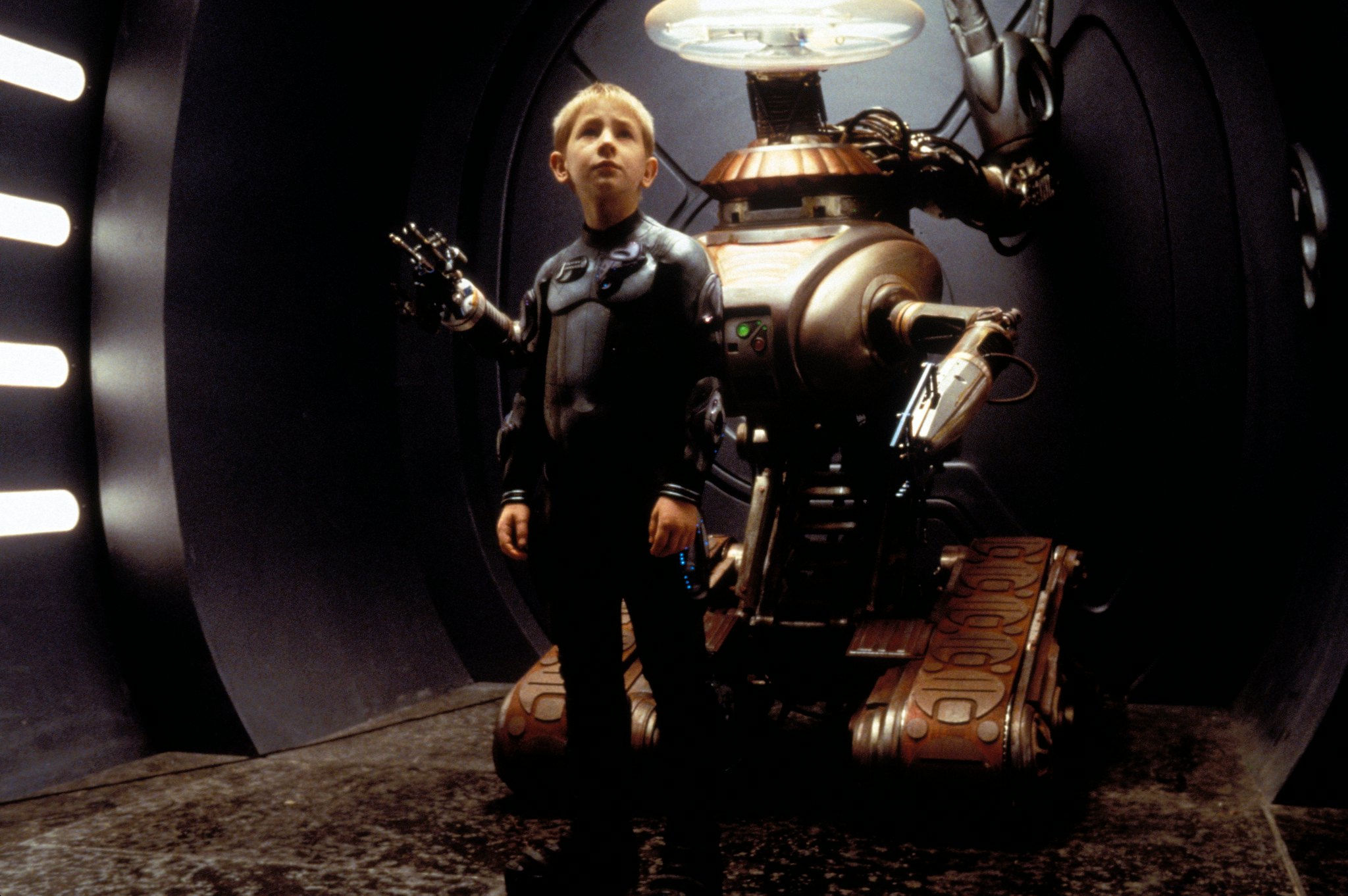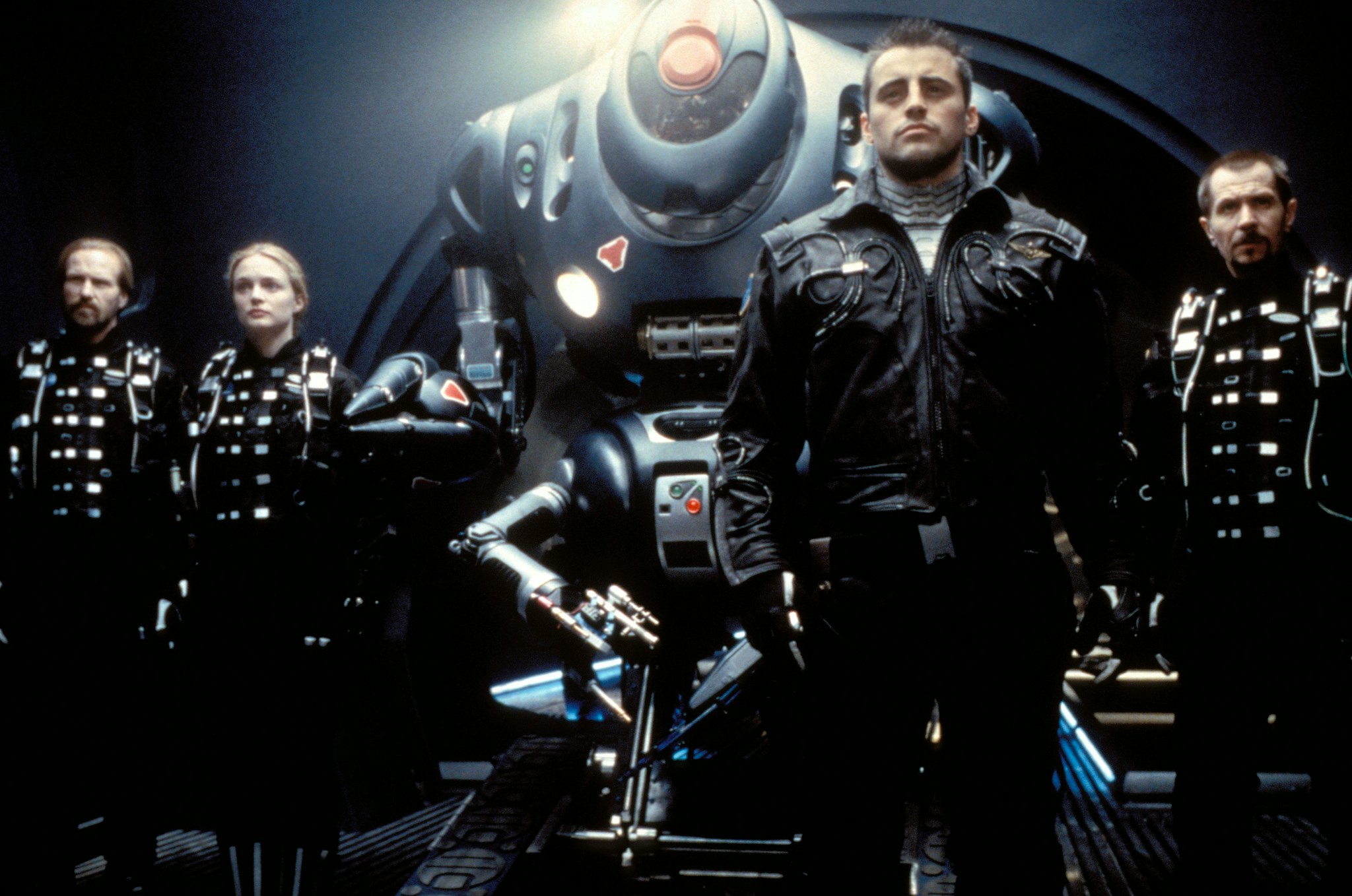
The year is 1998. The category is sci-fi family film. The entrants are Lost in Space, a feature remake of the popular 1960s TV series, and Star Trek: Insurrection, basically a feature-length episode of Star Trek: The Next Generation. Insurrection, which sees the crew of the Enterprise helping the people of Ba’ku after uncovering a Federation conspiracy on the planet, is by far the better story, but Lost in Space had Star Trek beat in one way.
For the most part, Star Trek is a workplace drama. Even if I couldn’t articulate that aspect of its narrative formula as a kid, the utopian workplaces of The Original Series and The Next Generation had me dreaming about what my future work families would look like. But while I didn’t have a job as an 11-year-old, I did have a family. This gave Lost in Space an edge, because it was all about a family, and it actually gave its kid characters stuff to do.
The Lost in Space movie is technically a workplace drama, but only superficially. The original series was a loose, space-based adaptation of The Swiss Family Robinson, the classic novel about a shipwrecked family that has to survive away from the comforts of civilization. Lost in Space, in all its iterations, is about a family suffering the same fate. The movie follows Professor John Robinson (Will Hurt) and his underappreciated wife Maureen (Mimi Rogers) as they schlep their three kids — Judy (fully grown and a scientist, played by Heather Graham), Penny (teen vlogger, played by Lacey Chabert), and Will (child prodigy, played by Jack Johnson) — across space for a mission meant to save the human race. Joining them is hot-shot pilot Major Don West (a Friends-era Matt LeBlanc) and evil scientist Dr. Smith (Gary Oldman).
The story begins in 2058, two decades before the Earth is set to become uninhabitable, a fact the government keeps secret. But John Robinson is in the know, so he’ll lead a mission to a planet called Alpha Prime to construct a hypergate that will allow people to be instantly transported to their new home. To get there, the gang has to spend 10 years in cryogenic sleep. That doesn’t happen. Dr. Smith, working on behalf of some nondescript terrorist organization, programs Robot (Dick Tufeld) to sabotage the mission soon after departure. Of course, the nondescript terrorist organization sabotages Dr. Smith too, leaving him stranded on the ticking time bomb of a ship.
Our crew survives, but finds themselves, well, lost in space. They endure a space station filled with giant spiders that can chew through metal, crash land on a strange planet, and deal with the machinations of Future Will (Jared Harris), who’s obsessed with traveling back in time to stop the Robinsons from ever leaving Earth.

The film was obviously constructed as a franchise starter, with an ending that leaves the Robinsons still in space. While the film has immersive production design, some fun action sequences, and visual effects that mostly still hold up, the weak script is littered with regressive humor and some of the laziest character work this side of Highlander II: The Quickening.
Major Don West only speaks in machismo-drenched aphorisms and spends most of the movie sexually harassing Judy. Professor Robinson is a lousy dad, husband, and boss, while Maureen is constantly reverting into ‘50s housewife mode. When Robot is about to kill her and Penny, Maureen just gives up, gathers her daughter in her arms, and says, “Look away, baby,” until the men can save them. Ironically, the movie was written by Akiva Goldsman, who would go on to shape much of modern Star Trek. We all have our growing pains.
But if you were a kid watching this in 1998, there was something attractive about a scenario in which the adults are always screwing up. Meanwhile, Will keeps saving the day, and Penny adopts an adorable lizard-monkey alien, which is every child’s dream. Insurrection was better, but the not-so-great Lost in Space can make you wonder what it would be like to travel into the unknown with your family.







